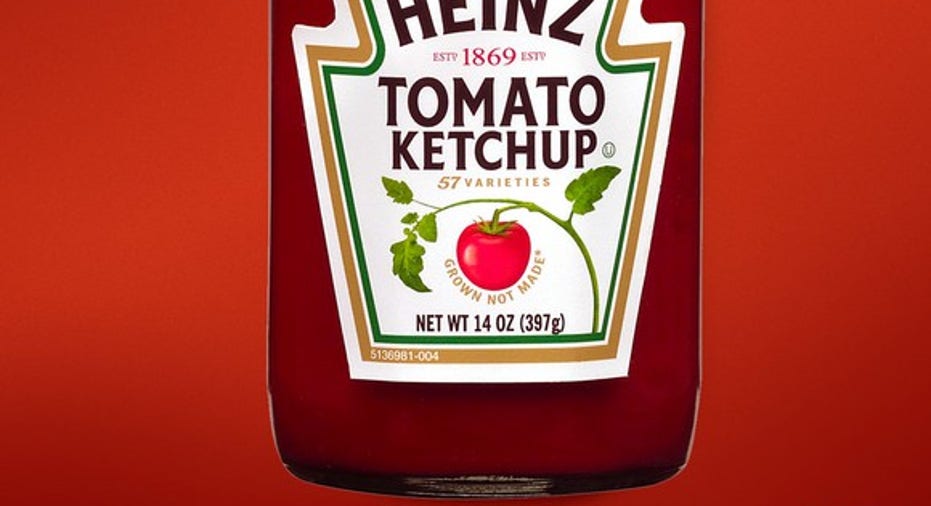What Ketchup Means to Kraft Heinz

Few companies are as associated with a single product as much as Heinz is with ketchup.
Heinz, now a part ofKraft Heinz(NASDAQ: KHC), has been making ketchup for 140 years, and the dominance of its popular condiment is a unique phenomenon in the food business, where typically multiple varieties and brands have sprung up to appeal to a range of consumer tastes.
Image source: Heinz.
The New Yorkerwriter Malcolm Gladwell explored the timeless popularity of Heinz ketchup in a 2004 article entitled"The Ketchup Conundrum."Gladwell theorizes that Heinz Ketchup has been so successful because it perfectly balances the five known tastes -- salty, sweet, sour, bitter, and umami. At a food-tasting panel he discusses, Heinz scored better than a competing high-end brand because of its "amplitude," or ability to blend together flavors in a way that is not easily distinguishable to the taster, hitting the five key sensors as well.
There may be no definitive answer explaining the enduring popularity of Heinz ketchup, but it's clear that it has withstood challenges that have brought other once-popular brands down. Founder Henry J. Heinz said, "To do a common thing uncommonly well bring success," and the company may be one of the best examples of that in the business world.
But the brand's success comes with more than the ketchup's ability to hit all five flavor sensors. Heinz is more particular than you'd think about its proprietary recipe. The company produces its own hybrid tomato seeds "through traditional breeding techniques to ensure superior quality, taste and nutrition." Heinz supplies 6 billion of these seeds to farmers every year, producing firm tomatoes that stay ripe longer and provide the ketchup's trademark thick, rich taste. The company even has a standard for the speed at which the ketchup leaves the bottle, setting a maximum of 0.28 miles per hour. If the ketchup moves faster than that, it is rejected for sale.
Not surprisingly, ketchup is also big business to Kraft Heinz. The company sells $1.5 billion in ketchup annually, or the equivalent of 650 million bottles. That sum made up 5.5% of Kraft Heinz's total revenue of $27.5 billion last year, and ketchup continues to be a growth driver for the newly combined company.
The success of Heinz ketchup has helped propel the brand in other categories as it has come to dominate baked beans in the U.K., selling 1.5 million cans a day. Heinz also invented the popular British dish beans on toast.
One of Heinz's biggest backers, of both the ketchup and the business, is Warren Buffett. In 2013, Buffett teamed up with the Brazilian investment firm 3G to take Heinz private for $28 billion, later merging it with Kraft. Buffett lauded the company for its "great-tasting products,"which he's sampled many times.
Gladwell's analysis above explains why Heinz, especially the ketchup, is an iconic Buffett business. The ketchup business is the epitome of an economic moat, with its dominance of brands big and small for over 100 years, and with a product as simple and boring as ketchup, Heinz is likely to reign for another 100 years. Like Coca-Cola, it's a classic Buffett business -- a strong brand with repeated purchases that generates significant profits in a product category that won't be easily disrupted.
For Kraft Heinz, the third-largest food and beverage company in the country, ketchup is not only a source of more than $1 billion in revenue each year. It may be the company's most iconic product.
A secret billion-dollar stock opportunity The world's biggest tech company forgot to show you something, but a few Wall Street analysts and the Fool didn't miss a beat: There's a small company that's powering their brand-new gadgets and the coming revolution in technology. And we think its stock price has nearly unlimited room to run for early in-the-know investors! To be one of them, just click here.
Jeremy Bowman has no position in any stocks mentioned. The Motley Fool recommends Coca-Cola. Try any of our Foolish newsletter services free for 30 days. We Fools may not all hold the same opinions, but we all believe that considering a diverse range of insights makes us better investors. The Motley Fool has a disclosure policy.



















